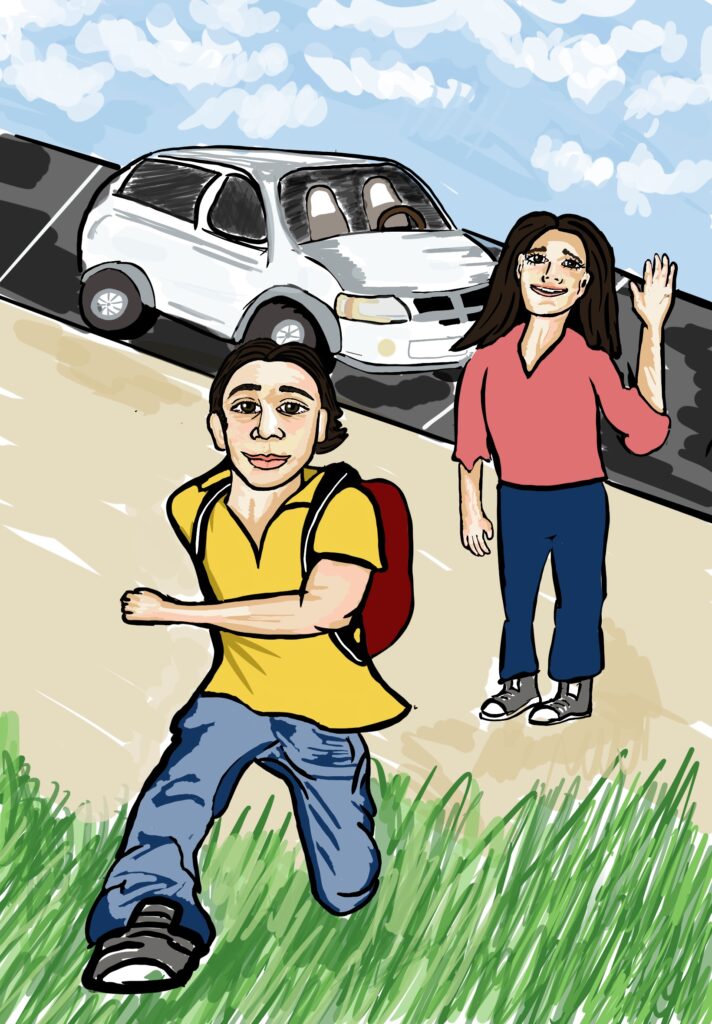I am not a particularly political person. I have never been to a Young Republicans meeting, a Young Democrats meeting, or even a Young Centrists meeting. Growing up, I did not discuss politics at the dinner table the way I do every day at Choate. I have hazy memories of TV anchors reporting on different parties and flashing pictures of congressional meetings across the TV screen, but I have trouble recounting any memories of discussing or engaging in politics throughout my childhood.
So when I arrived at Choate and was thrown into bipartisan politics, I was culture shocked. Not only was I confused and overwhelmed by all of the political jargon, but I was also surprised to learn that so many people my age already had concrete opinions about where they fell on the political spectrum. In and outside the classroom, students passionately expressed their opinion through art, social media posts, debates, articles, and other media.
Here I was, perpetually confused about where in Korean society I fit in and where in American society I fit in. I could barely articulate who I was, so who was I to comment on the state of American society? While I educated myself and felt passionate about certain topics, I kept these thoughts silent and internalized. My initial reaction to American politics was intimidation, and I shrunk back into a corner of American society where I felt out of the way; I withdrew from the American identity I felt like I had no right to claim.
In retrospect, this process of doubting my role in American society was a painful but necessary part of accepting with conviction that I had a right to have an opinion. In fact, this allowed me to reflect on who I was and what my political beliefs were. Becoming more involved in American politics later in life, I have had the chance to thoroughly educate myself and formulate thoughts independent from my family members and friends.
The greatest testament to my beliefs struck this year. At home in South Korea, the first female president, Park Geun-hye, was faced with charges for bribery and abuse of power.. In the United States, my second home, President Trump P ’00 won the 2016 election despite all odds. In 2017, I feel the need to speak up. I was pleasantly surprised that when I decided to speak strongly on political issues, I was comfortable. I was ready to claim my American identity and fight for my right to participate.
Ms. Park was an incompetent leader, not stable, independent, or worldly enough as an individual to lead a nation. Mr. Trump sends the message that sexism, bigotry, and divisive rhetoric should be condoned. I wasn’t ready to categorize these beliefs into neat little packages with the labels “liberal” or “conservative,” for my views were more multi-dimensional than these terms could possibly encompass. How would Ms. Park’s impeachment influence other women’s chances to participate on the main stage of Korean politics?
Drawing a parallel between Ms. Hillary Clinton’s campaign and people’s scrutiny of Ms. Park’s capabilities as the first female president, how did sexism influence how people viewed her mistakes? Would the recognition of the accomplishments of female politicians be more rare to find? And would the denigration strike down harder on female politicians that make a mistake?
Questions swirled around in my head, and I sought to find answers in the world around me. I started at home, tentatively introducing politics into dinner conversations. I gradually became more open to talking with my friends and family. I opened myself up with every conversation, allowing others to take a look into my views, and people most often reciprocated. I have found some answers, but I still seek to find answers to these questions and many others. In turn, I strive to answer others’ questions to the best of my ability, hoping to add depth to their perspectives.
I am not writing as a liberal or conservative, Democrat or Republican. I am simply claiming my right to have an opinion — to be, feel like, and be proud of being an American. More than ever, it is important to have an opinion; being a bystander doesn’t exempt you from responsibility. So no matter what gender, age, or ethnicity you may be, jump into discussions. Educate yourself. Speak about your experiences. You might be surprised by what you find out about yourself and others.




